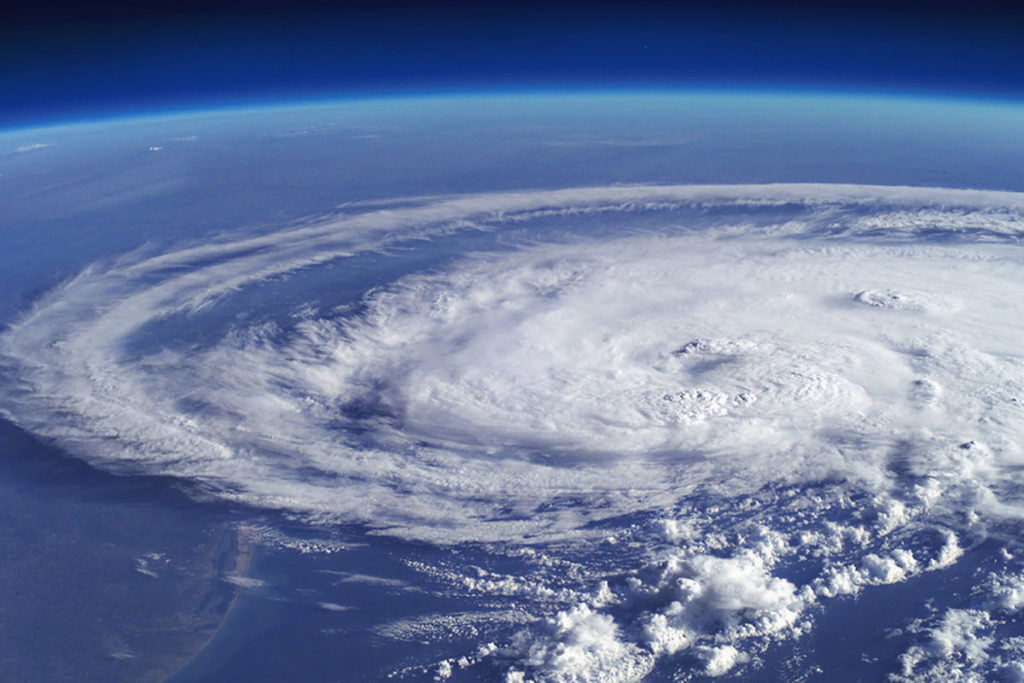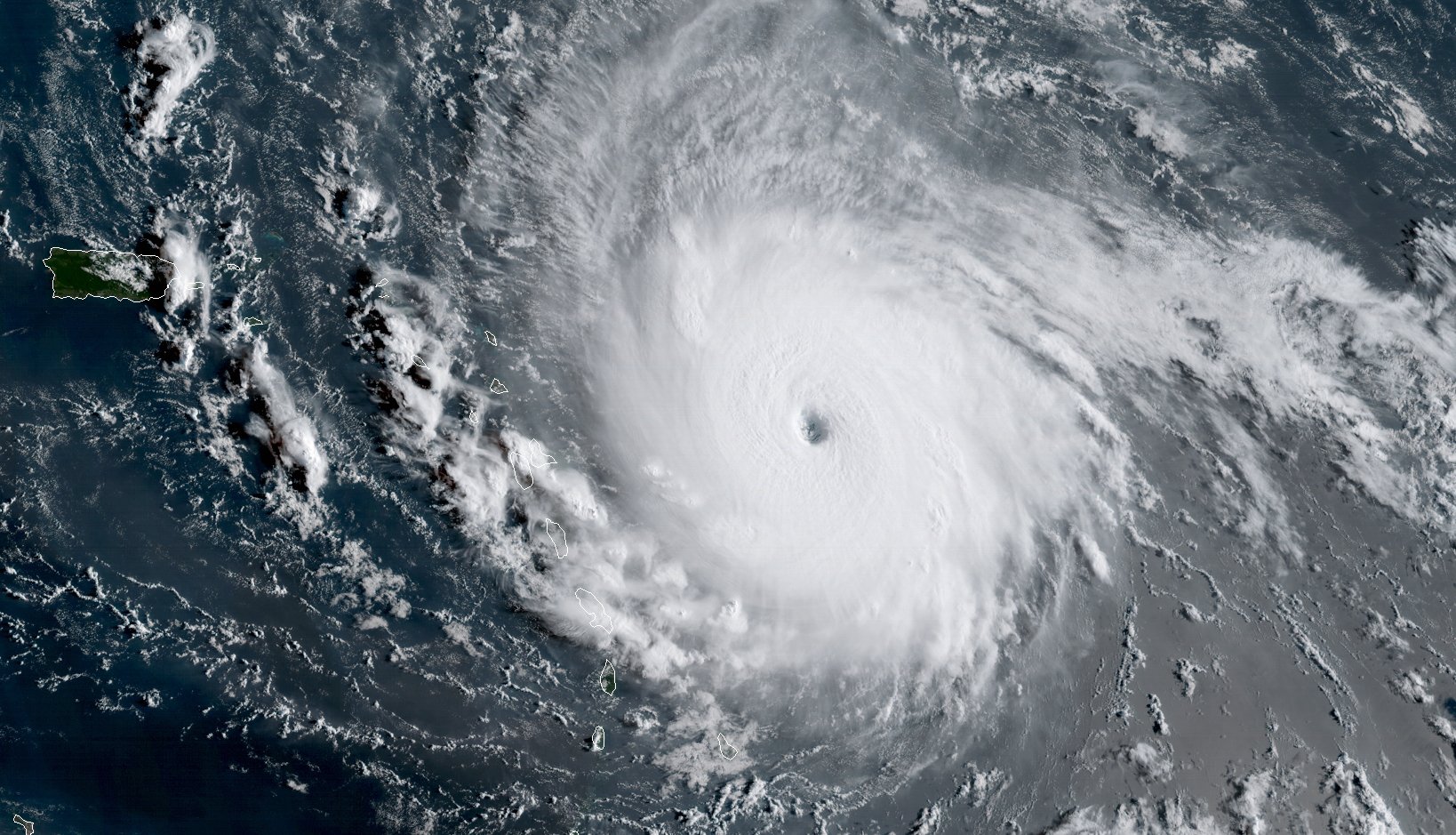Hurricane Irma, a dangerous Category 5 hurricane, is currently blasting the islands of St. Martin and Anguilla. Irma is now heading toward the Virgin Islands, Puerto Rico, Hispañola, the Bahamas and Cuba before posing a serious threat to Florida beginning this weekend.
Irma first passed over Barbuda, an island of 1600 residents, with gusts of at least 155 mph overnight into Wednesday morning. Early Wednesday morning, the eye of Irma then moved over St. Martin and Anguilla, where sustained winds of 117 mph were measured.
Irma became the strongest hurricane in the Atlantic basin, outside of the Caribbean Sea and Gulf of Mexico, on record on Tuesday morning, according to the National Hurricane Center.
With the uncertain fate of the hurricane, here are some precautionary tips all residents along the Southeast coast and eastern Gulf Coast, including Florida, Georgia and the Carolinas, can utilize as they monitor the progress of Irma. Even if officials don’t issue a mandatory evacuation for your area, you still need to be prepared for the worst. Ready.gov offers these tips to prepare for a hurricane and/or flood.
Evacuation
If you’re ordered to evacuate, don’t waste time. The sooner you leave, the safer you’ll be. It might be wise to leave before the order if you can sense it coming.
Before the evacuation order, map a route. Unfortunately, Florida only has a few major highways that allow for evacuation to the north, and those will be crowded.
Fill up your gas tank.
Contact your bank and let them know you will be out of the area. This will help prevent the bank from shutting down your bank cards during an emergency.
Hotels will be crowded, so plan to make many calls for availability. If possible — stay with friends or relatives if you can.
You can go to a shelter as a last resort; they will be crowded and uncomfortable and should be used only by people who have nowhere else to go. You will probably not be able to bring your pets. You should take your emergency kit with you to the shelter, since it will probably not be able to provide anything more than a roof over your head.
What to pack:
- Cash
- Clothes
- Pack essentials like undergarments and socks in a plastic bag so they stay dry
- Some food and water for the road
- Cellphone with chargers and a backup battery
- Prescription and nonprescription medications (like pain relievers)
- Diaper bag for baby
- Toys and books for children
- Pets and their supplies (food and water for three to seven days, leashes, harnesses)
- Important documents, copies of insurance policies, ID cards (in a plastic bag)
- Flashlights with extra batteries
- First-aid kit
- Local maps

If you’re staying
If you’re not ordered to evacuate and you decide to stay in your home, you should still be prepared for the worst. Prepare to lose power and running water. Have adequate supplies for several days if not a week. And know that roads may be flooded or blocked, so if you decide not to leave you probably won’t be able to change your mind.
Ways to prepare your home
The best advice on how to prepare your home will come from people who have lived in Florida for more than a decade. The state hasn’t seen a storm like this since Wilma in 2005, and many people will be unfamiliar with how to prepare.
- Trim damaged trees or branches so they’re less likely to fall during the storm.
- Secure all gutters and downspouts and clear them out to prevent home flooding.
- Board up your windows if you’re close to the coast.
You can use a portable generator for power should you lose electricity, but never turn on the generator indoors and never plug a generator into a wall outlet. Don’t run it in the rain or in flooding. You can prevent the generator from getting rained on with a makeshift canopy.
- Cover your air conditioning unit so debris does not damage it.
- Bring your lawn furniture inside.
- Reinforce or double secure your garage door.
Household Stockup Checklist
You may already have these items. Make sure they are easily accessible.
- Water — at least 1 gallon daily per person for three to seven days
- Food — at least enough for three to seven days (nonperishable packaged or canned food and juices)
- Food for infants or the elderly
- Snack foods
- Paper plates and plastic utensils
- Fill your car with gas
- Pet care items
- Proper identification, immunization records and medications
- Blankets, pillows, etc.
- First-aid kit, medicines and prescription drugs
- Special items for babies and the elderly
- Toiletries, hygiene items and moisture wipes
- Flashlight
- Batteries
- Fully charged cellphone with extra battery or a traditional (not cordless) telephone set
- Cash (with some small bills)
- Keys
- Toys, books and games for the kids
- Important documents (birth certificates, medical records, Social Security card, insurance policy, etc.) in a
- Waterproof container or watertight, resealable plastic bag
- Tools
Potential Impact Timing
- Leeward Islands: through Wednesday
- Puerto Rico/Virgin Islands: Wednesday-early Thursday; tropical storm force winds will arrive during the early morning hours
- Dominican Republic/Haiti: late Wednesday-Thursday; tropical storm force winds will arrive Wednesday night or early Thursday
- Turks and Caicos: Late Thursday-Friday
- Bahamas: Friday-this weekend; tropical storm force winds may arrive as early as late Thursday
- Cuba: Friday-this weekend; tropical storm force winds will may arrive as early as Thursday night
- Southeast United States: This weekend into early next week, beginning in south Florida Saturday.





Comments